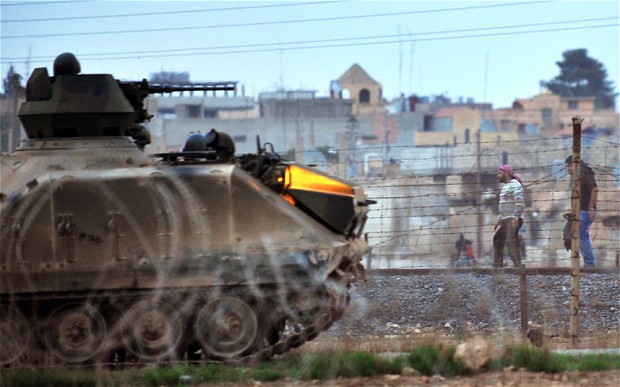KUALA LUMPUR/MANAMA: The global financial crisis has intensified a push for Islamic finance to return to its roots and move further away from conventional banking, but some warn that more originality could alienate investors.
Many bankers fear radical reforms to the industry could make products less attractive to investors who have become reluctant to take on fresh risk and uncertainty in the wake of the crisis.
But recent sukuk defaults and the Dubai debt crisis have given ammunition to industry critics, who argue that Islamic instruments would have held up better if there were not such a close resemblance between sukuk and conventional debt.
So Islamic scholars are reviewing practices such as sukuk repurchase agreements and tawarruq (purchase and resale) financing, as they push for the industry to focus more on the Islamic principles of risk-sharing and lending based on the real economy.
The industry s move back to its roots will lead to a different approach to risk by the investor base. This shift to a different approach will change the landscape of Islamic banking, said Safdar Alam, JPMorgan s Bahrain-based Islamic structuring head.
It will make it more challenging initially, and it s that shift that s one of the contributing factors why the industry appears to be very slow in taking on board this kind of criticism.
Pressure for reform The push to reform Islamic finance gained pace even before Dubai s crisis erupted last November, and intensified because of worries that Nakheel, issuer of the world s largest Islamic bond, would default during debt restructuring at some Dubai state-owned companies. A $4.1 billion sukuk issued by Nakheel was ultimately repaid last December after Abu Dhabi provided aid to Dubai shortly before the deadline.
In 2008, the Accounting and Auditing Organization for Islamic Financial Institutions (AAOIFI) ruled that borrowers in sukuk mudaraba and musharaka should not promise upfront to pay back their face value at maturity.
Under mudaraba, a bank provides capital for a project while the entrepreneur manages the deal; profits are split according to a pre-determined ratio and the bank bears any monetary losses that arise. In musharaka, parties contribute capital to a venture with profits to be shared in an agreed ratio, while losses are generally divided in line with capital contributions.
Bankers say that along with the economic slowdown and the general turmoil in global financial markets, the AAOIFI s ruling contributed to a more than 50 percent drop in sukuk sales in 2008, measured by Standard & Poor s data.
And in April 2009, the Saudi-based Fiqh Academy s decree outlawing tawarruq munazzam as a deception cast a shadow over the $100 billion commodity murabaha market.
Some experts have described tawarruq munazzam, as often practiced, as a paper shuffle devoid of real economic benefits despite giving a semblance of a chain of asset sales.
Critics argue such practices, as well as cost-plus sales, where they say profit is a substitute for interest in name only, are earning Islamic finance a copycat tag and hindering its expansion beyond markets in the Middle East and Malaysia.
People are actually concerned about the credibility of Islamic finance, said Muneer Khan, a Dubai-based partner at lawyers Simmons & Simmons.
What has happened according to some scholars I ve spoken to is that movement has moved too far in the direction of conventional debt and that equity-based financing has been left behind – it s like a pendulum they want to swing back.
Difficult road to reform Some bankers say the Fiqh Academy s ruling is prompting the industry to seek alternatives such as the mudaraba structure. The Academy s secretary-general said in November that some Middle Eastern banks were moving away from tawarruq munazzam following the ruling. Some experts also predict a shift towards more ijara or rental-based sukuk. Ijara is a structure in which an Islamic bank buys an asset and leases it to the customer for an agreed rental fee.
The widespread introduction of such alternatives faces major obstacles, however. Throughout the history of Islamic finance, development of products has been hindered by a lack of Sharia scholars and specialist bankers.
The growth was supported by the debt capital market desks of international, domestic, regional banks, and the debt capital market desks of these banks invest in fixed-income products, Armen Parpazian, head of Islamic banking at UBS Investment Bank, told a recent Islamic banking conference in Manama.
The investors that supported the growth of the sukuk markets are also investors of debt capital markets, which means that sukuk, by the very market infrastructure that supports it, is bound to have a fixed-income cash flow.
Even more crucially, investors may not want to grapple with radically new products while they are still smarting from losses incurred during the global crisis, and while the global financial environment remains so uncertain.
But as long as Islamic finance still struggles with the legacy of distrust left by the Dubai crisis, critics are likely to continue to use this issue to press for reform.
The industry is in danger of dying in the cradle because it has taken poison in its food from conventional capital markets, said Richard Thomas, chief executive of British Islamic lender Gatehouse Bank.
If it s to thrive and prosper it has to do so on Islamic principles.

